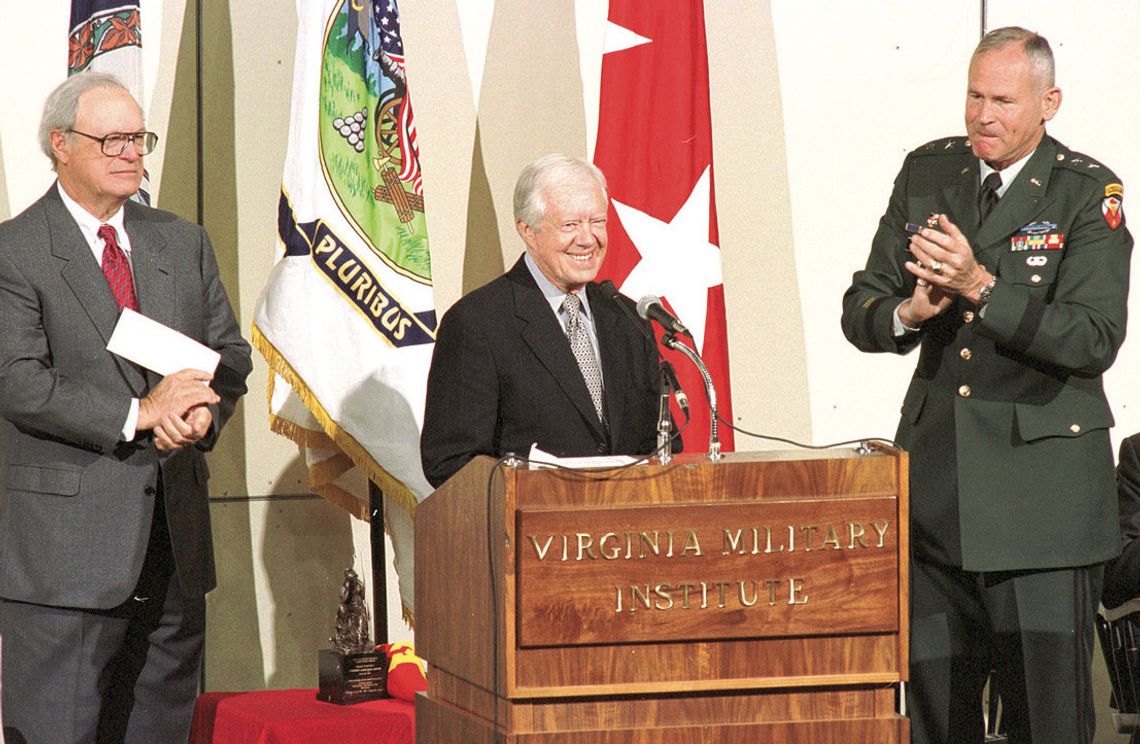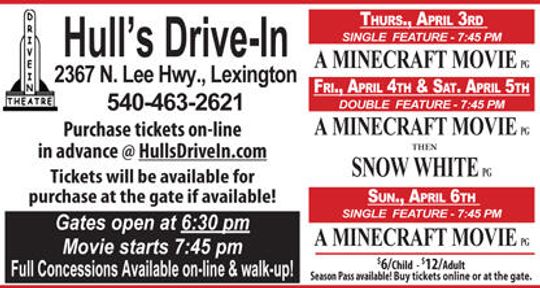Editorial
Former President Jimmy Carter is being remembered around the world this week as a staunch advocate for human rights, a peace negotiator, a monitor of elections, a catalyst for combating disease and easing suffering. He’s remembered here, locally, as the first recipient of Virginia Military Institute’s Jonathan Myrick Daniels Humanitarian Award.
Carter came to Lexington on March 29, 2001, to accept the award named for a VMI alumnus who became a civil right martyr in 1965 when he stepped in front of an African American teenager at a country store in Alabama to shield her from a shotgun blast that would claim Daniels’s life.
That teenager, Ruby Sales, was present at the 2001 ceremony at VMI’s Cameron Hall. She told reporters then that Carter was an appropriate choice for the initial Daniels award because of the many activities Carter had been involved with to ease the suffering of the less fortunate and to bring people of different races and varying backgrounds together.
Daniels, valedictorian of VMI’s class of 1961, was an Episcopal seminary student working for civil rights in the Deep South when he was killed at age 26. The award was created by the VMI board of visitors in 1997 to “emphasize the virtue of humanitarian public service and to recognize individuals who have made significant personal sacrifices to protect or improve the lives of others.”
Subsequent winners of the Daniels award, following the inaugural one given to Carter in 2001, were Andrew Young (2006), a former mayor of Atlanta and U.S. ambassador to the United Nations; Paul Hebert (2011), international humanitarian worker and VMI alumnus; John Lewis (2015), Georgia congressman and civil rights leader; and Carolyn Miles (2019), CEO and president of Save The Children, a global organization that eases the suffering of children in war-torn countries.
Carter was unique as a past president in that his post-presidential activities have seemed to outshine those of his actual presidency. As president, he did have his noteworthy accomplishments – he negotiated the Camp David peace accords between Israel and Egypt, reached the SALT II treaty with the Soviet Union, spoke out for human rights all around the world and was an early advocate of renewable energy.
However, many remember his presidency more for the economic difficulties of the 1970s – high inflation and interest rates – and the Iran hostage crisis that consumed the last portion of his presidency. Although inflation was a key factor in Carter’s electoral defeat to Ronald Reagan in 1980, limiting his presidency to a single term, many credit Carter’s appointment of Paul Volcker as chairman of the Federal Reserve with being integral to curbing inflation in the 1980s. Volcker’s tight money policies brought inflation under control but by the time it happened, Reagan was well into his presidency and given credit for the economic turn-around.
Carter’s post-presidential legacy likely exceeds that of any other former president. Two years after leaving office, he and his wife Rosalynn established the Carter Center, a nongovernmental, nonprofit organization based in Atlanta whose mission has been to advance human rights, alleviate suffering and promote peace and democracy worldwide.
The Carter Center has known great success in carrying out this mission. The center has helped negotiate peace agreements and led efforts to eradicate and prevent disease such as Guinea worm disease, river blindness, trachoma and lymphatic filariasis. It has monitored elections all over the world to ensure that they are conducted fairly and democratic ideals safeguarded. It has supported defenders of human rights and worked to advance laws that uphold the dignity of individuals. It has been an international leader in teaching farmers better cropproduction techniques to combat hunger and increase the world’s food supply.
Carter himself was recognized for many of these achievements when he was awarded the Nobel Peace Prize in 2002. The Norwegian Nobel Committee bestowed this honor, it said, for “his decades of untiring effort to find peaceful solutions to international conflicts, to advance democracy and human rights and to promote economic and social development.”
With his death Sunday at age 100, Carter leaves a lasting legacy that is and will continue to be appreciated by people all over the world.





